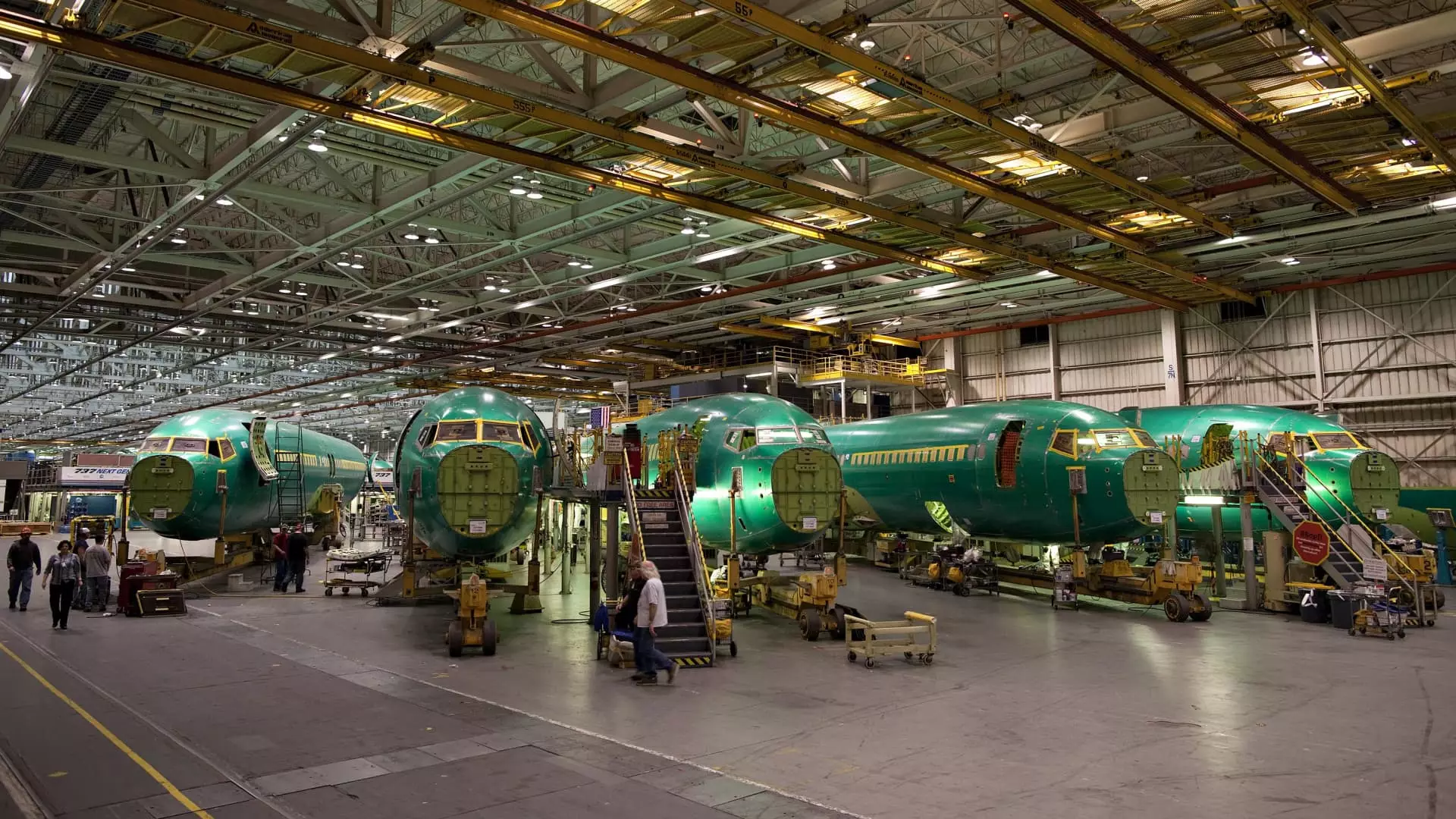Boeing made headlines on Monday with the announcement of its plan to buy back Spirit AeroSystems in an all-stock deal. The planemaker claims that this acquisition will lead to improvements in safety and quality control. The deal involves Boeing paying $37.25 a share in Boeing stock for Spirit, resulting in an equity value of $4.7 billion. However, when factoring in Spirit’s debt, the transaction value balloons to $8.3 billion, as stated by Boeing.
Spirit AeroSystems, based in Wichita, Kansas, plays a critical role in the aerospace industry by manufacturing fuselages for planes like the Boeing 737 and providing sections for the Boeing 787 Dreamliners. In 2005, Boeing spun off its operations in Kansas and Oklahoma, which eventually became Spirit AeroSystems. Notably, Boeing accounted for approximately 70% of Spirit’s revenue last year, with the remaining quarter coming from supplying parts to Boeing’s competitor, Airbus.
Dave Calhoun, Boeing’s CEO, emphasizes that bringing Spirit under Boeing’s umbrella will align the production systems and workforces of the two companies. He sees this acquisition as a significant step in enhancing quality and demonstrating Boeing’s commitment to meeting global expectations. Calhoun has expressed confidence in closing the deal by mid-2025, subject to regulatory approvals and the agreement of Spirit shareholders.
While Boeing proceeds with its acquisition plans, Airbus has also been active in securing agreements with Spirit. Airbus is set to receive $559 million from Spirit in exchange for acquiring manufacturing lines dedicated to Airbus planes, encompassing facilities in Belfast, Northern Ireland, Wichita, Kansas, and North Carolina. This move underscores the intricate web of partnerships and dealings in the aviation industry.
The aviation sector has been grappling with a series of quality control issues, exemplified by the National Transportation Safety Board’s report on a serious accident involving a Boeing 737 Max 9. The report highlighted problems with the door plug bolts, underscoring broader concerns about production flaws in Boeing planes. The fallout from such incidents has negatively impacted Boeing’s delivery schedule and financial performance.
Boeing’s financial struggles have been exacerbated by the series of setbacks and crises, leading to a significant drop in its share price. The company’s CFO has projected cash burn throughout this year, indicating the severity of its financial challenges. Moreover, the Federal Aviation Administration has imposed restrictions on Boeing’s production expansion until it is satisfied with the quality control measures in place.
Boeing’s reputation has taken a hit due to concerns about safety lapses and a perceived lack of progress in addressing past issues. The company’s leadership, including CEO Dave Calhoun, has faced scrutiny from lawmakers, highlighting the need for stringent safety protocols and enhanced oversight in the aviation sector.
Boeing’s acquisition of Spirit AeroSystems represents a significant strategic move aimed at improving safety and quality control. However, the complexities of the aviation industry, coupled with regulatory challenges and financial pressures, underscore the risks associated with such a high-stakes transaction. As Boeing navigates this acquisition process, stakeholders will closely monitor the outcomes and implications for the future of both companies.

